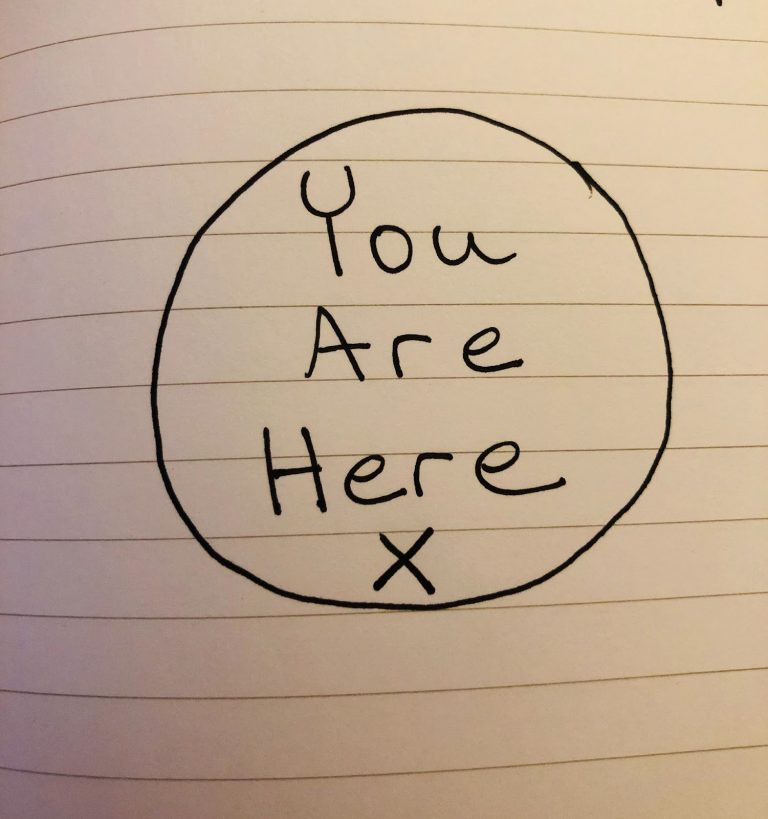
A lot of our expectations are not our own. Culture shapes what we think about the world, about what people, including us, should do and how we should all be. Cultural norms — which are nothing but expectations — define what success is, how a marriage is supposed to run, how children are to be raised and even what happiness consists of. Social animals that we are, we strive to adhere cultural expectations, lest we be excluded from the happy zoo of conformity.
If you have any doubt, think about how you raise your children. Why would it possibly stress you out that 10-year-old Brandon prefers to play ball instead of doing his homework? What’s it to you, unless you have internalized the cultural ideas that a) success is the result of good grades in school and a following college degree and b) success is what your son needs in life? We believe our spouse cheated on us, because our culture says that if your spouse has sex with anyone other than you, it’s cheating. If it wasn’t for that idea, it would just be your spouse having sex with another person.
The principle of judgment and the belief that people and the world should be a certain way is so ingrained in our societies that even revolutionary ideas quickly fall into the same rhythm. One of the most powerful examples of this is the women’s rights movements. It started out in fierce resistance to the tight corset of stereotypes and expectations that women found themselves trapped in. They were tired of being limited in their choices, of being reduced to living their lives as loving, supporting housewives, forever submissive, nurturing and entirely unambitious.
Women took to the streets to claim their rights too be equal to men in the right to choose what to do with their lives. Never mind that men had their own set of limiting cultural beliefs to deal with; the fact of the matter was that their range of options was much wider than any woman’s at the time. The struggle has been going on for a long time. Today, women are in leadership positions in government and private companies, women can make a career, become doctors, university professors and astronauts. Happy ever after.
Or not? Curiously, I have talked to many women who feel guilty, insufficient and inferior now, because they chose to stay home with their children and live the life of a housewife. And I have seen so-called feminists decrying such a decision as either the non-decision of a poor, disempowered little creature or a betrayal of ‘the movement’, whatever that is. What we have, then, is not the freedom of choice that women initially set out to fight for, but simply a new paradigm that dictates what a successful ‘ good’ woman looks like. More expectations.
And men are not any more liberated, by the way. Interestingly, while women have carved their way into the masculine realm and taken their seats at the business tables and political platforms, very few men have even attempted to enter the feminine realm. What does that tell us about value? I know, I know, that’s another book. Just saying.
In any case, we’re bound to feel the cultural expectations on our shoulders. In some societies those expectations weigh much more heavily than in others and, of course, the individual upbringing and family values do play a role. Overall, however, we don’t escape the fact that much of what we think we should do and how we should live comes from the unspoken and spoken demands that culture puts on us. The question is, is it possible to make the distinction between practical and emotional expectations on the level of culture and society?
I say it’s worth exploring. There are, of course, practical expectations that seem very logical and sensible to us. Do not steal. Do not kill another human being. Do not rape. Do pay for your groceries. Do pay your taxes. Do separate your garbage.
What are the emotional expectations behind “do not steal”? We want to feel safe. We want to feel respected. We want to feel that we deserve what we have. The degree to which our emotional well-being depends on the fulfillment of that need will have significant influence over how we deal with people who fail to meet our expectation. This is why in some countries thieves have their hands cut off, while in other countries they may do twenty hours of community service.
At the same time, there are presumably practical expectations that come with a very heavy load of emotional expectation. If you’re not sure how those feel, try becoming a parent. The amount of “practical” advice you’ll receive, whether you asked for it or not, is equal to none that I know. Breastfeed, but not too long. Let your baby cry it out. Let her sleep in your bed. Let her sleep in her own room. Carry him. Don’t carry him. You may have a cup of coffee. You may have three. Don’t you dare drink coffee! Show your toddler who’s the authority in your home. Let them run free. What do you mean you haven’t signed them up yet for language class?
The practical implementation of any of these may or may not be difficult. What drives us into rage, depression and overwhelm are the emotional expectations that are lurking behind every well-meant guidance: be a good parent. You, the mother, the parent, are responsible for the success, the happiness and the social compatibility of your child. And we’re so busy trying to meet these expectations that we never stop to ask ourselves: is that true?
I invite you to question a thought today. Pick one that causes you overwhelm, stress, frustration. Look at it: Is it true? Is there even the slightest possibility that something else could be just as true?
Big change starts small.



